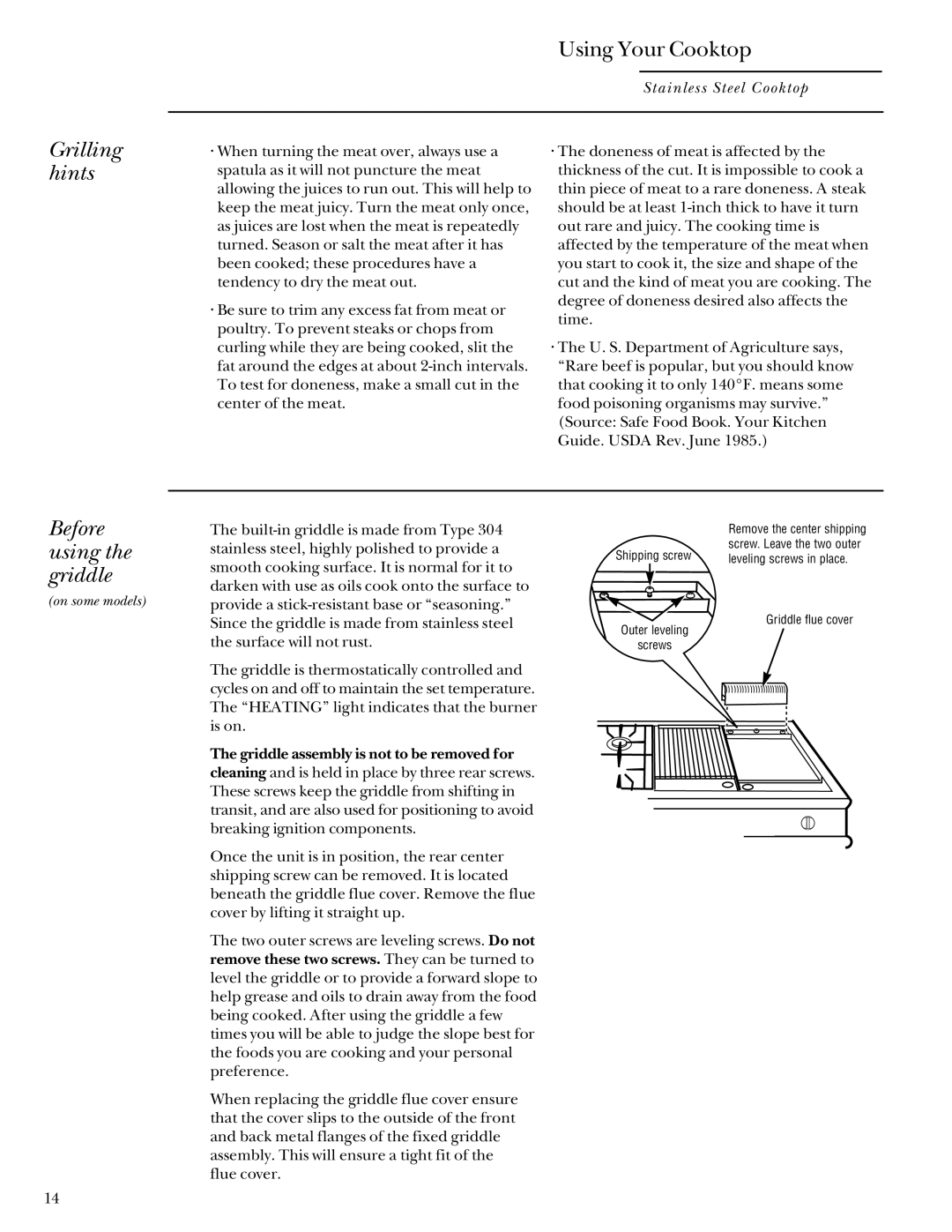
Using Your Cooktop
Stainless Steel Cooktop
Grilling hints
•When turning the meat over, always use a spatula as it will not puncture the meat allowing the juices to run out. This will help to keep the meat juicy. Turn the meat only once, as juices are lost when the meat is repeatedly turned. Season or salt the meat after it has been cooked; these procedures have a tendency to dry the meat out.
•Be sure to trim any excess fat from meat or poultry. To prevent steaks or chops from curling while they are being cooked, slit the fat around the edges at about
•The doneness of meat is affected by the thickness of the cut. It is impossible to cook a thin piece of meat to a rare doneness. A steak should be at least
•The U. S. Department of Agriculture says, “Rare beef is popular, but you should know that cooking it to only 140°F. means some food poisoning organisms may survive.” (Source: Safe Food Book. Your Kitchen Guide. USDA Rev. June 1985.)
Before using the griddle
(on some models)
The
The griddle is thermostatically controlled and cycles on and off to maintain the set temperature. The “HEATING” light indicates that the burner is on.
The griddle assembly is not to be removed for cleaning and is held in place by three rear screws. These screws keep the griddle from shifting in transit, and are also used for positioning to avoid breaking ignition components.
Once the unit is in position, the rear center shipping screw can be removed. It is located beneath the griddle flue cover. Remove the flue cover by lifting it straight up.
The two outer screws are leveling screws. Do not remove these two screws. They can be turned to level the griddle or to provide a forward slope to help grease and oils to drain away from the food being cooked. After using the griddle a few times you will be able to judge the slope best for the foods you are cooking and your personal preference.
When replacing the griddle flue cover ensure that the cover slips to the outside of the front and back metal flanges of the fixed griddle assembly. This will ensure a tight fit of the flue cover.
Shipping screw
Outer leveling
screws
Remove the center shipping screw. Leave the two outer leveling screws in place.
Griddle flue cover
14
